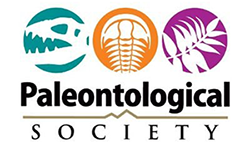This journal is a member of the GeoSciences eJournals portal.
Click the links below to view content from other journals:
For a listing of the current editorial board and coordinating authors, please see Editorial Team
For more information about the Coordinating Author(s) for each volume, please see the Coordinating Authors for Each Volume
Coordinating Authors at Treatise Online function exactly like editors of volumes of scientific books or special issues of a scientific journal. The Editor-in-Chief of the Treatise on Invertebrate Paleontology, who is also the Director of the University of Kansas Paleontological Institute, approaches eminent invertebrate paleontologists in the field to see if they are interested and would be willing to take on the responsibilities associated with serving as Coordinating Authors for a volume of the Treatise.
Each volume is arranged around an organismic theme, such as: Bivalves (Clams); Ammonites; Trilobites; etc. Any one volume will consist of many dozens of articles (one could also think of them as chapters in a large book) submitted and published over the course of many years. Articles focus on subjects such as the anatomy, ecology, evolution, and systematics of the particular organism that is the theme, e.g., ecology of bivalves, evolution of bivalves, etc. The largest number of articles in any given volume will cover the systematics and taxonomy of the different groups within the larger group; this is because a group like bivalves contains many tens of thousands of species and thus many larger scale taxonomic groupings.
The Coordinating Authors develop the outline for a volume, that is to say, the provisional titles for individual articles and the approximate number of articles it will consist of. During this phase they still consult with the Editor-in-Chief, but they are making the primary editorial decisions on what a volume will consist of and what individual authors might cover. The Coordinating Authors then select and contact the authors to invite them to submit the individual articles within a volume. The Coordinating Authors, working with those individual article authors, together develop a timeline for when the articles will be submitted. Typically, Coordinating Authors will themselves author several articles in any volume as well.
Coordinating Authors are responsible for arranging and handling the review of articles authored by others. Coordinating authors do not handle the review process for their own articles, due to the obvious conflict of interest, and would instead ask other individuals to pick reviewers and evaluate reviews for these.
Further, Coordinating Authors make the initial editorial decisions as to whether articles are acceptable or require revisions. If reviewers feel they require revisions, the Coordinating Authors decide whether the revisions made satisfy reviewer comments, or an article needs to go out to review again, etc. That is to say, Coordinating Authors are making the key editorial decisions about individual articles, authors, and content. However, as the Editor-in-Chief is responsible for the overall quality of the research published, they will make the final decisions about which papers are acceptable if they feel it necessary.
The Editorial Board of Treatise Online--currently Bruce Lieberman, Mike Cormack, and Denise Mayse--continues to be involved after an article has been accepted. The editorial team is responsible for copy editing manuscripts and making sure that the text and figures adhere to Treatise style. They will work with article authors, and the Coordinating Authors of the entire volume, to make the transition from an accepted manuscript to a fully published, formatted article. The editorial team will also help deal with any other editorial issues such as making sure that all necessary permissions for figures, etc., have been secured. Moreover, the editorial team will take the article files, usually Word documents, and the figure files, Tiff’s, etc., and generate journal formatted proofs which they then share with authors. The editorial team then makes any needed corrections to the proofs and the files from which they are generated. Once proofs are finalized, they will publish the paper in Treatise Online, working with KU Libraries staff if necessary.
This journal is a member of the GeoSciences eJournals portal.
Click the links below to view content from other journals:
Paleontological Institute, University of Kansas, Malott Hall
1532 Jayhawk Blvd., Room 1023, Lawrence, KS 66045-7594, USA
paleo@ku.edu
(785) 864-3338
This electronic edition is supported by the University of Kansas Libraries

